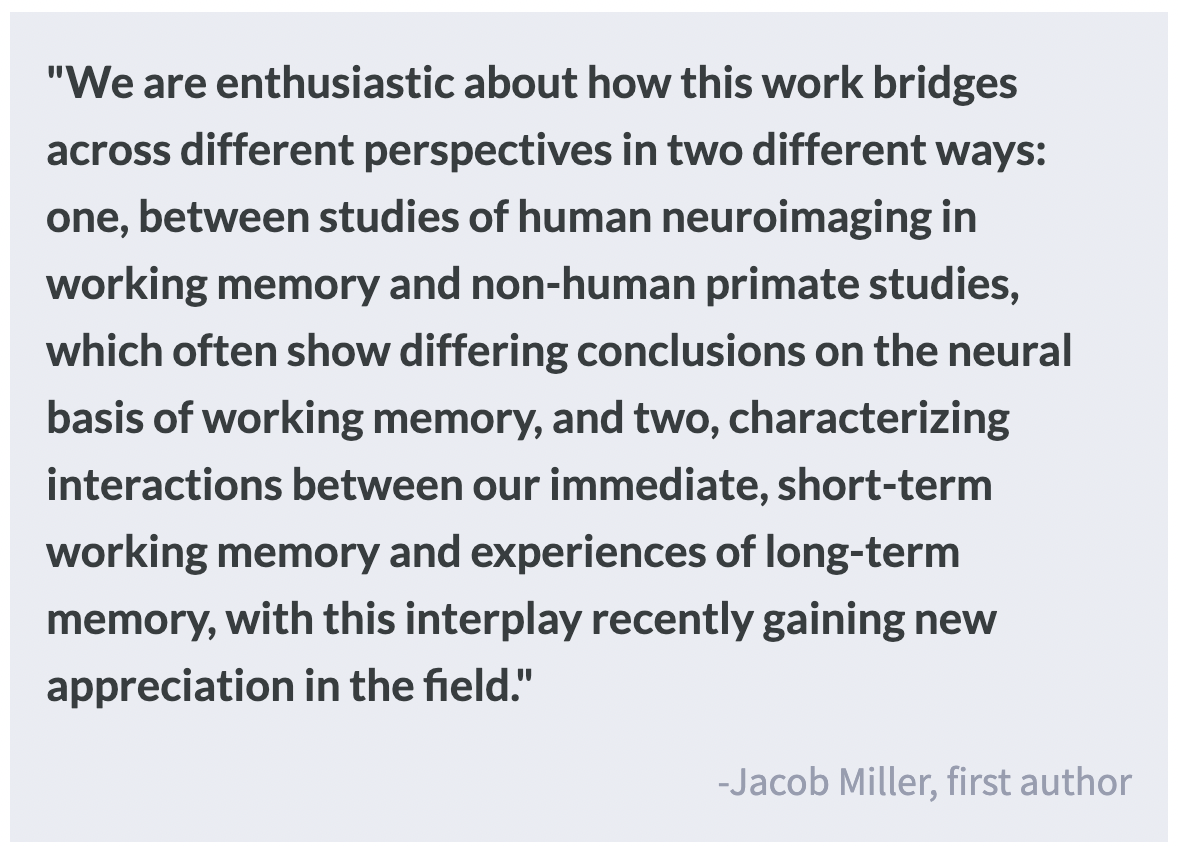Neural Representations for Working Memory are Affected by Long-Term Learning
Post by Lina Teichmann
The takeaway
Neural representations of working memory in lateral prefrontal areas are influenced by past experiences. These results help to disambiguate conflicting findings with regard to the role of lateral prefrontal cortex in working memory.
What's the science?
Many studies have shown the involvement of lateral prefrontal cortex (lPFC) in working memory function, however, its specific role in successful working memory performance is unclear. In particular, previous studies have shown that on the one hand lPFC stores working memory content, and on the other hand lPFC controls working memory content that is stored in sensory cortices. This week in Neuron, Miller and colleagues clarify the role of lPFC by showing how long-term learning affects prefrontal activity during working memory.
How did they do it?
The authors acquired densely sampled behavioral and functional Magnetic Resonance Imaging (fMRI) data from a small sample of participants across three months and tested how long-term learning affects working memory. In all tasks, participants viewed colorful fractal stimuli. In a working memory task, they saw a single sample fractal at a time and had to select that sample fractal from a display of three fractals after a short delay – these three fractals could be ones they had trained on before, or novel. The same fractal stimuli were used in a serial reaction time task participants also trained on, where 12 of the fractals were shown in set sequences. Using set sequences allowed for establishing new associations between stimuli and sequence categories. The behavioral data was used to examine the extent of learning over the course of the three-month data collection period. To examine the neural working memory representations activity over the course of long-term learning, fMRI was sampled from lPFC.
What did they find?
Long-term learning had an effect on the neural representations of working memory in lPFC. There was an increase in the spread of activity during working memory maintenance as training progressed as well as stronger stimulus-specific (but not category-specific) representations in lPFC. Long-term exposure to stimulus associations that were not relevant for working memory task performance also influenced working memory representations in prefrontal areas. Overall, this highlights that working memory representations are shaped by long-term experience.
What's the impact?
The current study contributes to our understanding of the specific role of lPFC during working memory: that long-term learning strengthens specific working memory representations in the lPFC. By using the approach of densely sampling behavioral and neuroimaging data over time, the authors were able to address competing theories on the role of the lPFC.


